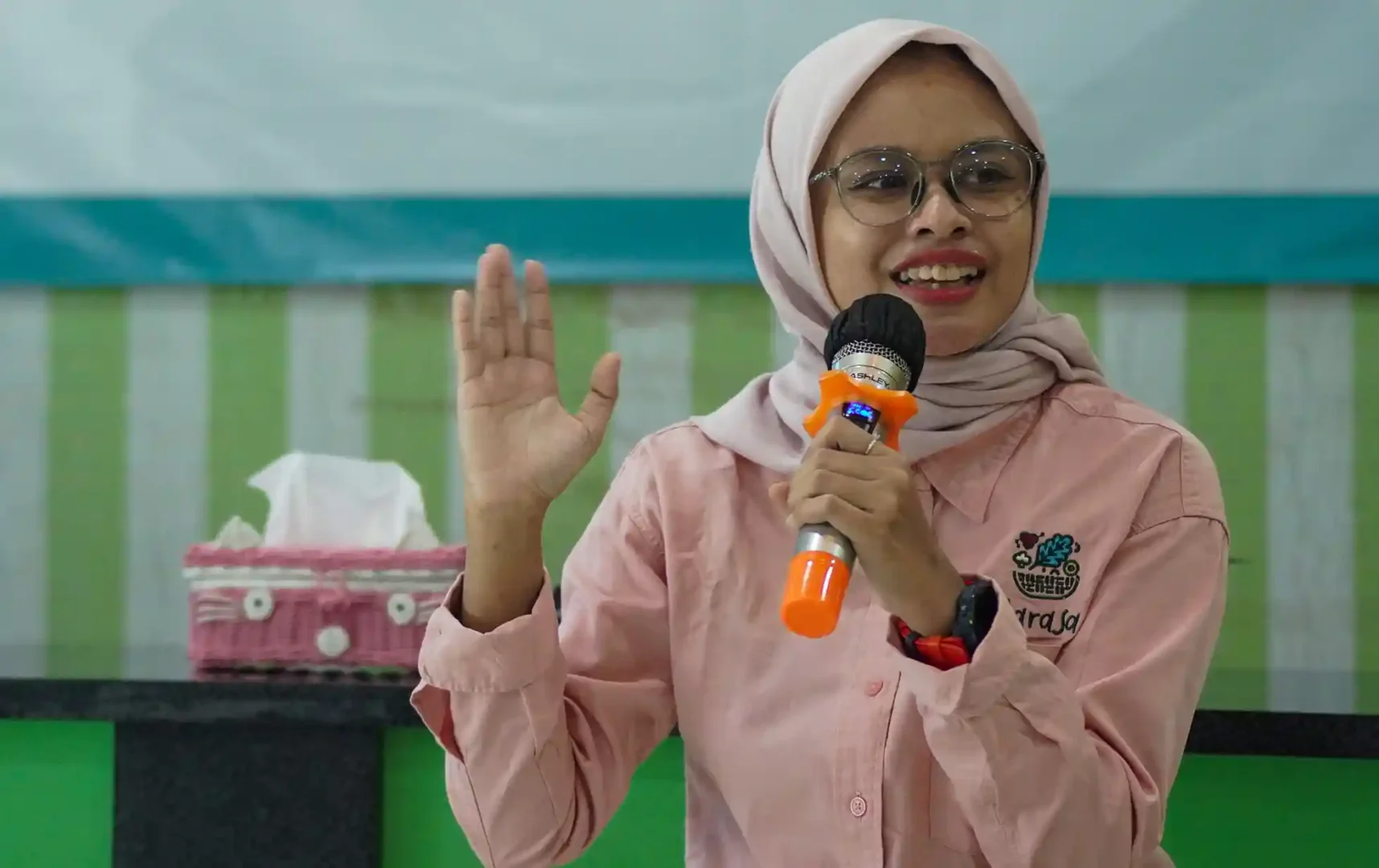
Devina Sandriati is a mentor and entrepreneur dedicated to supporting Indonesia’s micro, small, and medium enterprises (MSMEs), especially women-led businesses, in enhancing their branding and marketing skills to connect with larger markets.
Founder of the food start-up Narasa, Devina leverages her background in education and insights gained from the Australia Awards Short Course to empower communities across Indonesia through innovative programs that promote local products and sustainable economic development.
What inspired you to start mentoring MSMEs and focus on local, handmade products?
During my work in the education sector, travelling across Indonesia, I observed that many micro-businesses were run by parents, often mothers, who produced promising local snacks and products without clear branding or marketing strategies. I saw an opportunity to bridge this gap by providing practical training to help these MSMEs expand their offerings and reach larger markets. That’s how Narasa began, initially focusing on food product development using local ingredients like sorghum and modified cassava flour, before shifting towards marketing and community development.
How did your participation in the Australia Awards Short Course influence your approach to mentoring MSMEs?
The Australia Awards Short Course on International Business Readiness for Women-led MSMEs in the Food Sector, delivered by Griffith University, was an enriching experience. The mentorship style in Australia was notably student-centric and respectful, which was different from what I had experienced before. I deepened my knowledge in branding, marketing, and business modelling, gaining practical insights that I adapted for Indonesian MSMEs. The course also fostered valuable networking, and I continue to maintain supportive relationships with fellow participants that have enhanced my communication and collaboration skills.
What are some of the challenges MSMEs face in Indonesia when trying to scale or access larger markets?
Many MSMEs lack effective branding and marketing strategies, which limits their market reach. Supply chain constraints and limited business ecosystems also hinder their growth. Additionally, there is a need to align products with sustainable practices, which is becoming increasingly important. Overcoming these challenges requires tailored training, community engagement, and facilitating connections to broader markets.
Can you tell us about Narasa’s initiatives and how they support MSMEs across Indonesia?
Narasa supports hundreds of MSMEs by focusing on product research and development using local resources. For example, in West Sumbawa, we implemented the community-based program Silaras, which involves MSMEs and youth in creating souvenirs and merchandise for both domestic and international visitors, including sales at Lombok International Airport. In Central Java, we have helped 40 MSMEs develop eco-friendly batik businesses and partnered with Timba, a community maker space, to support tuberculosis survivors by training them in woodcrafts. We also work with MSMEs in Aceh, North Sumatra, and West Java to strengthen supply chains for jack bean products, providing an alternative protein source.
What impact have these programs had on MSMEs and their communities?
The programs have led to increased revenue and improved business capabilities for many MSMEs. Market testing of locally designed products in West Sumbawa has shown positive responses from residents and tourists, indicating potential economic contributions. Sustainability and women’s empowerment are key themes in our initiatives. Narasa also developed a database to monitor MSME progress, helping identify those ready to scale or export, which further connects them with broader opportunities.
Looking ahead, what are your goals for Narasa and your mentoring work?
We plan to maintain long-distance mentoring relationships to ensure sustained growth for MSMEs. In the long term, we aim to collaborate with partners to create unified branding strategies that can drive local economic development across Indonesia. We also hope to expand our reach to regions where sustainable tourism and women’s empowerment are critical issues.
